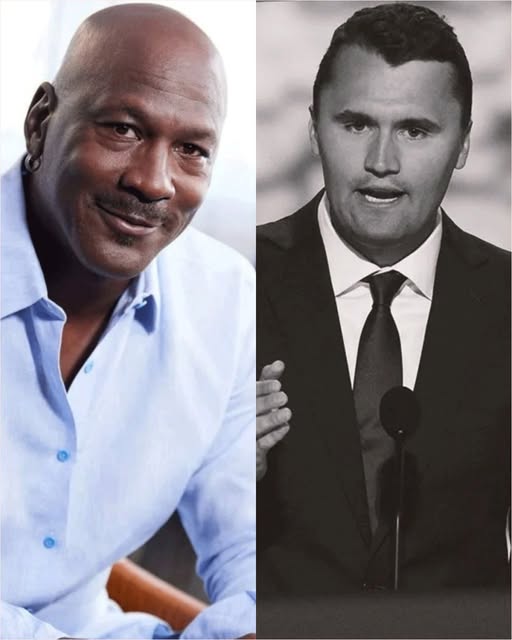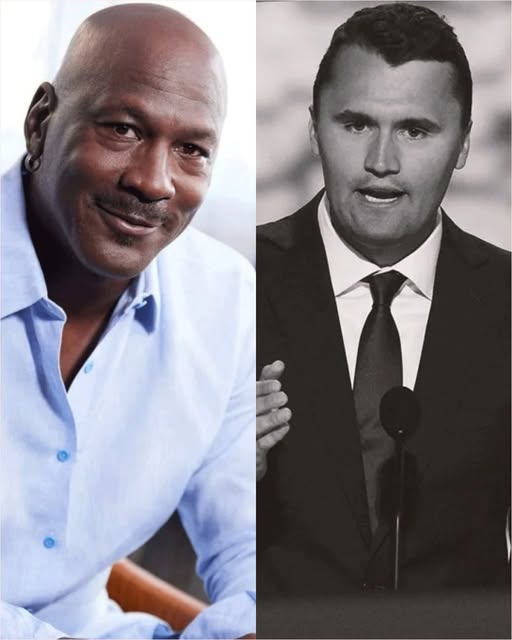Michael Jordan’s public identity has been built on a foundation of silence. For decades, his refusal to engage in political or social controversies was a strategic choice that preserved his universal marketability. That carefully constructed myth has now been fundamentally challenged. Jordan’s recent, forceful statement on the death of Charlie Kirk is more than just news; it is a cultural earthquake that forces a re-evaluation of one of the world’s most famous men.

The power of Jordan’s statement lies not just in its content—a suggestion of a foundational truth yet to be revealed—but in its sheer existence. By breaking his own long-standing rule, Jordan instantly赋予 his words with immense gravity. The scene was described as electric, with a visibly determined Jordan displaying an emotion the public rarely sees: a raw, urgent demand for accountability. This is not the cool, competitive fire of the basketball court, but the heat of moral conviction.
The aftermath reveals a public grappling with the new reality of a vocal Michael Jordan. The explosion on social media signifies a rupture in the understood contract between the athlete and his audience. Corporate sponsors, who have long relied on his safe neutrality, are now faced with a different figure. The event raises a pivotal question: is this a momentary intervention or the beginning of a new chapter where Jordan uses his unparalleled platform for advocacy? By speaking, Jordan has done more than comment on a case; he has shattered the apolitical archetype he helped create and challenged the very idea of what a retired superstar can be.


